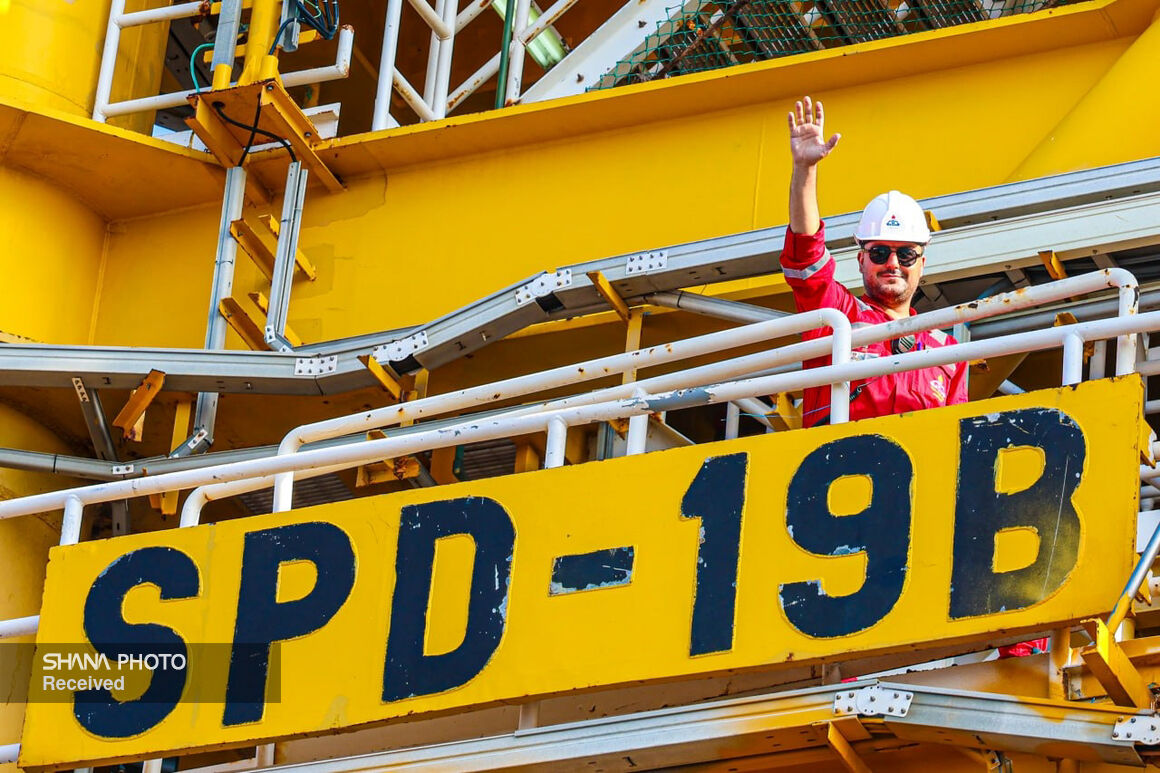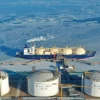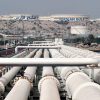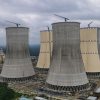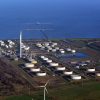Abolghassem Delfi, former Iranian ambassador to France, emphasized that the ongoing negotiations between Tehran and Washington could pave the way for Iran’s return to the European energy market. He stated that if sanctions are lifted, Iran would not only be able to increase its oil and gas exports, but also attract foreign investment to develop the country’s energy infrastructure.
According to Shana, quoting Iran Petroleum Monthly, the start of Iran-U.S. talks has raised hopes for an improved position for Iran in the global energy market. If sanctions are lifted, Iran could rapidly increase its oil and gas exports and once again become a reliable energy supplier, especially for Europe. Iran’s quick reentry into the market after the JCPOA agreement demonstrated that its energy sector infrastructure has the capacity to boost production and exports.
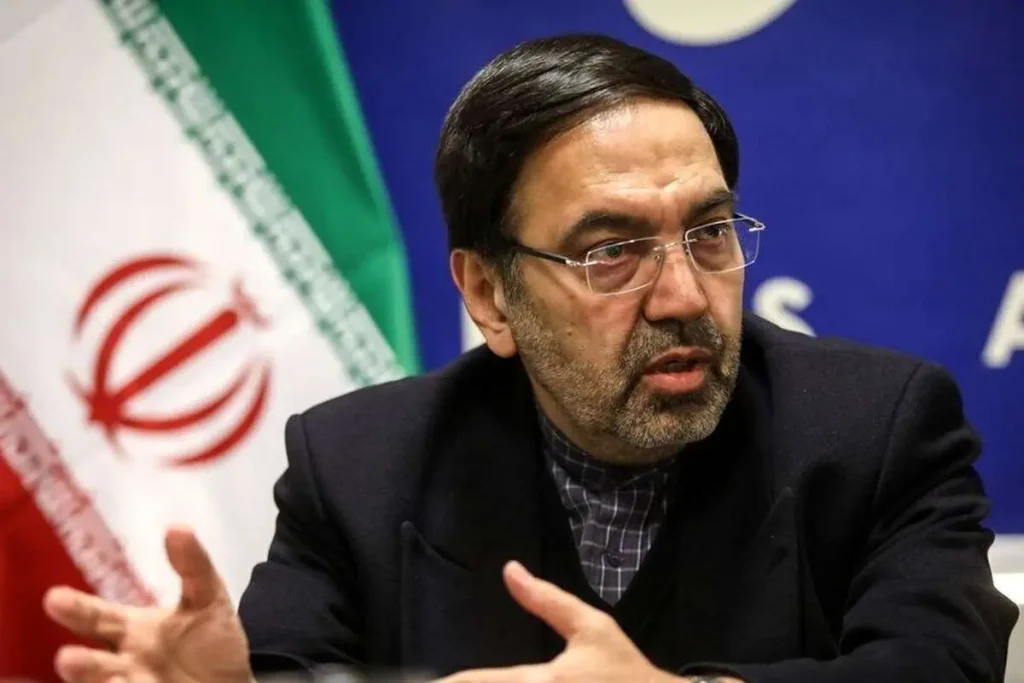
Furthermore, the prospect of attracting foreign investment would allow for the development of oil and gas fields and the advancement of energy technologies in Iran. The Ministry of Petroleum under the 14th administration, in addition to efforts to neutralize the effects of sanctions, is actively promoting investment opportunities in the energy sector through expanded energy diplomacy and the development of regional and international cooperation. Oil Minister Mohsen Paknejad has also announced that the ministry welcomes all forms of investment in the energy sector and has introduced attractive incentives for investors.
Interview with Abolghassem Delfi, Former Ambassador of Iran to France
How do you evaluate the current state of Iran’s oil sales? Given the ongoing negotiations between Tehran and Washington despite tighter U.S. sanctions, can these talks improve Iran’s energy exports, including oil, gas, and petrochemicals?
Negotiations between Iran and the United States are ongoing, and it is expected that some of the existing issues could be resolved through dialogue and mutual understanding. However, no definitive results have yet been achieved, and consequently, there has been no significant change in Iran’s energy exports internationally. In other words, Iran remains under sanctions.
Nevertheless, some countries have received licenses from the U.S. Office of Foreign Assets Control (OFAC) to purchase Iranian oil. Despite sanctions, Iran has managed to offer a portion of its oil in global markets. Therefore, so far, the start of negotiations between Tehran and Washington has not directly impacted the volume of Iran’s oil exports, and oil sales continue within the framework of sanctions. However, entering negotiations has somewhat eased international tensions, and this relative calm has been reflected in various markets, including currency, gold, and other domestic economic indicators. A notable drop in currency and gold coin prices is one such indicator.
Lifting sanctions, especially in the oil, gas, and petrochemical sectors, is one of Iran’s primary goals in these negotiations. Achieving this objective could bring a major transformation in Iran’s energy market, with positive effects across the national economy. The 2015 JCPOA agreement showed that if sanctions are lifted, Iran has the capacity to rapidly reenter the global oil market. Between 2016 and 2018, after the implementation of the JCPOA, Iran’s oil exports returned to normal levels, and despite challenges, it regained access to oil revenues through the banking system. International analyses also confirm that Iran increased crude exports faster than expected after the JCPOA. If current talks between Tehran and Washington reach a positive outcome—which signs suggest is politically feasible—this trend could be repeated.
So you believe that a potential agreement will improve Iran’s position in the energy market?
Yes, if conditions change, Iran’s energy market will undergo a transformation, attracting a more diverse group of buyers. This diversification will contribute to a more stable national economy and a better overall economic outlook.
If oil and gas sanctions are lifted, can Europe be a suitable destination for Iran’s energy exports?
Not long ago, European countries such as France, Germany, the UK, the Netherlands, and Italy were among the main buyers of Iranian oil. However, due to escalating sanctions, they stopped importing Iranian oil. After the 2015 JCPOA was signed, the President of the European Commission visited Tehran and held talks with Iran’s Ministry of Petroleum. The goal of these discussions was to reintegrate Iran into Europe’s energy supply chain and to help diversify the EU’s energy sources. In this context, major energy companies like Total, ENI, and Shell expressed their willingness to invest in Iran.
For instance, in 2017, TotalEnergies, in partnership with CNPC International of China and Petropars of Iran, signed a contract with the National Iranian Oil Company to develop Phase 11 of the South Pars gas field. However, after the U.S. withdrew from the JCPOA in 2018, Total exited the project due to sanctions-related pressure. In fact, Europe had allocated a significant chapter of its economic cooperation with Iran to the energy sector—covering oil, gas, and petrochemicals—and took concrete steps in 2016 to operationalize this collaboration. However, the harsh sanctions of the Trump administration halted European investment in Iran’s oil industry.
Given the changes in the European energy market following Russia’s invasion of Ukraine and the emergence of new players, can Iran now be a supplier for Europe?
Following the war in Ukraine, European countries imposed sanctions on Russian gas imports, gradually reducing Russia’s share of the European gas market. Russia, in turn, redirected its gas exports to markets like China. Meanwhile, Europeans turned to Gulf countries to fill the gap left by Russian energy, with Qatar and Saudi Arabia making significant efforts to become key suppliers in Europe’s oil and gas market.
Iran, however, due to the persistence of sanctions, was unable to take advantage of this opportunity to return to the European energy market. Still, if Iran can resolve its differences with European countries through dialogue and reach a principled framework for cooperation, a return to Europe’s vast energy market is conceivable. Such a comeback would not only generate sustainable oil and gas export revenues but also pave the way for the introduction of advanced energy technologies into Iran. European countries are well aware that with the world’s second-largest natural gas reserves and third-largest oil reserves, Iran can serve as a reliable supplier and play a key role in Europe’s energy security.
Therefore, it is crucial to attract foreign investment and create favorable conditions that accelerate the development of Iran’s energy infrastructure and allow the country to reclaim its rightful position in the global energy market.


